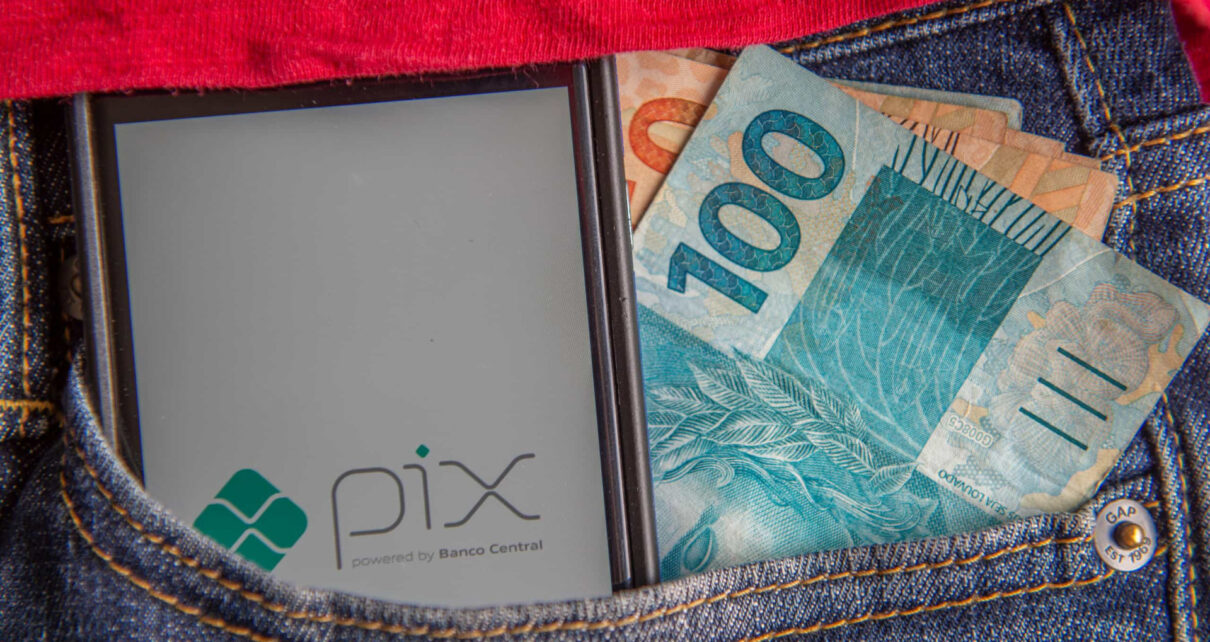SOROCABA AND SÃO PAULO, SP (FOLHAPRESS) – Scammers have used Pix to deceive victims on social media by offering easy money in exchange for simple tasks. This is the extra income scam.
Also called the “small task scam” or “R$20 scam”, the practice is not new. Criminals offer extra income to anyone who enjoys videos on platforms like TikTok, or reviews establishments on Google, for example.
According to reports heard by the report, the scammers approach the victim via WhatsApp and say they are from a company that provides evaluation and likes services. If you agree to find out more about the proposal, the victim is taken to Telegram groups, which have thousands of members and false reports of successful experiences.
In the group, the victim begins to receive requests from scammers. Tasks include liking videos, following profiles and reviewing establishments. In return, users receive between R$10 and R$20 after completing a certain number of tasks.
From then on the mechanics change. The user receives a message requesting an “investment” so that they can continue to meet their objectives. The amounts demanded range from R$120 to R$1,000, with promises of a return of 30% to 100% on the amount invested, according to one of the victims. From the moment the victim transfers money via Pix, they lose contact with the group and are blocked by administrators.
Lawyer specializing in digital law Luiz D’Urso states that criminals can obtain phone contacts from databases that have been exposed. “There are thousands of numbers, they choose some at random and send messages,” he says.
A 27-year-old office assistant, who asked not to be identified, says that, last Sunday (10), he received contact from supposed representatives of a company called Nustream, which called itself a “specialist in cryptocurrencies”. “They put me in a Telegram group with more than 2,000 people, but they were all robots. I did not know anyone.”
Without suspecting, he performed the tasks in exchange for small amounts, between R$10 and R$16. According to the assistant, 18 daily tasks were required, with a 30-minute break between them. Criminals promised revenue of R$800 per day.
After completing five tasks, requests for “investments” began. “I only accepted because I needed extra income to cover the month’s expenses,” he says. He says that, after transferring R$1,728 to the scammers, he was warned by the company’s supposed representative that, if he did not complete the last task, all his money would disappear. Then, a new investment was requested, in the amount of R$2,800.
According to the report, he told the scammers that he could not carry out the operation. In response, he says he received a message that pressured him: “You need to find a way to complete it and recover your principal [sic], along with your commission, and only after completing this last task will you be able to proceed with the operation of withdrawal.”
As he no longer had any money, he says he was removed from the group. He then registered a police report and a complaint on the Reclame Aqui website against the bank that received the transferred money.
The financial institution advised him, however, to contact his bank.
WHAT TO DO IF YOU FALL FOR THE EXTRA INCOME SCAM
To request a refund of a Pix made, the user must activate the Special Return Mechanism (MED), created by the Central Bank (BC) so that victims of financial scams can receive their money back.
To use MED, it is not necessary to file a police report. You must call or contact us via chat on the bank app and report what happened so that the refund request can be made. Based on the analysis carried out by the institutions, which can take up to seven calendar days, the blocked amount will be returned within 96 hours after confirmation of a scam or crime.
Luiz D’Urso recommends communicating the banks immediately, both the institution where the money came from and the one that received the amount. “The banks are responsible for this type of fraud, they are obliged to reimburse consumers, mainly due to the lack of security in monitoring these frauds in the banking system”, he says.
For Ione Amorim, from Idec (Brazilian Institute for Consumer Protection), it is necessary to register complaints not only against financial institutions, but also against the companies responsible for social media.
“The scammers disappear for us, the users, but not for those who own the networks. It is necessary to make a complaint so that companies can track these false companies and orange accounts created”, she says. “We need greater discretion when opening accounts and creating profiles on networks.”
Amorim says that people should be suspicious of supposed opportunities to make money easily. “This type of fraud has always existed and now it has modernized, like all our business relationships, migrating to digital”, he explains. “The victim must make sure that, in this scheme, they issue false reviews about establishments or products, which is unethical and could harm other consumers. It boosts commerce that doesn’t exist.”
THE GAME TURNED
Bank employee Pedro Monteiro, 45, claims he managed to fool the scammers. He received three contacts on different days with the same type of approach.
He says he agreed to participate and decided to see how far he could take the tasks without paying his own money. He says he was included in so-called “working groups” and started making simple posts and receiving fees via Pix.
After completing four tasks, demands for “investments” began. Monteiro denied it. A supposed manager of the company stated that the value of his evaluations would be reduced from R$5 to R$2. After a few more denials, the scammers stopped making the transfers.
The next day, he says that other people contacted him, this time to evaluate positively and comment on establishment pages on Google Maps. “They just made a R$10 Pix to include me in the group and right away they asked for investments to start the tasks”, he says.
The investment price list was divided into plans ranging from A to D and values ranging from R$120 to R$1,000, he says. When he refused the transfer request, he received the following message from the supposed administrator. “Then you’re going to lose this job.”
The banker claims that he filed a complaint with the group on Telegram, but that nothing happened. “There was no action by the platform to address this complaint. The group continued to be active until I took the initiative to leave,” he says.
When contacted by the report on Wednesday night (13), Telegram did not respond until the publication of this text.
At the end of the process, Pedro claims that he profited with R$80 from the scammers.
The extra income scam is classified as embezzlement and is provided for in article 171 of the Penal Code, with the possibility of one to three years in prison.



